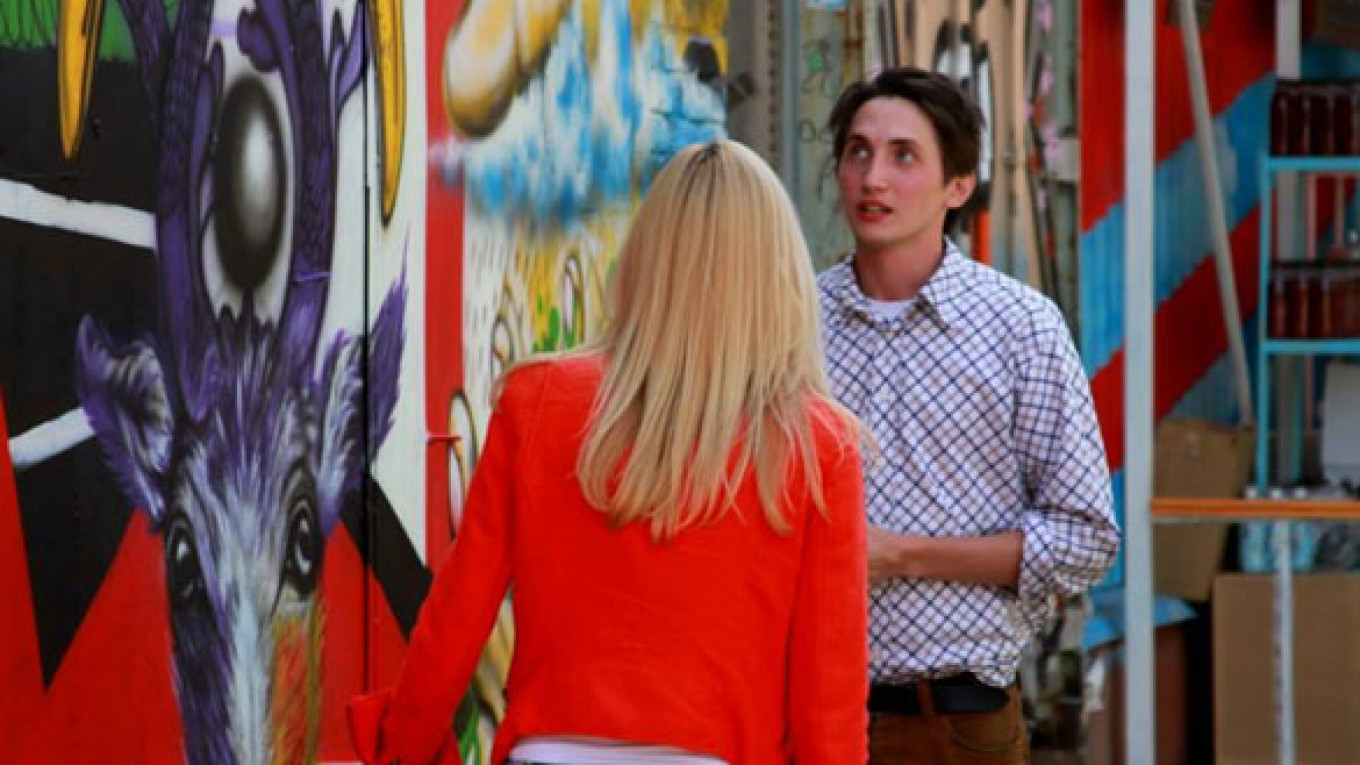1,500 square meters of wall space at the old Krasnopresnenskaya sugar factory have been on the receiving end of a hefty dose of spray paint after graffiti artists were granted the opportunity to work their magic on the structure — within limits.
Painted deer with gold-dipped antlers, photo displays, vegetarian food and parkour moves were all discernible at the opening on July 18, when the metaphorical ribbon was cut at the creative space, SakhArt, by Moscow's Acting Culture Minister, Sergei Kapkov.
The area is intended for use by the city's creative youth over the forthcoming months — until the ambiguously termed "end of summer."
Young artists are displaying their handiworks across the site, with new events expected to begin in the "playground" between July 27-28. They will continue to take place across the next four Saturdays.
Participants in events have included and will include artists from Moscow's Rodchenko School and graduates of Moscow Architectural Institute and the British School of Design, according to the Department of Culture.
In addition to serving as an exhibition venue for designers and photographers alike, it will also act as a new hub of lectures, cultural debate, meetings, master classes and social community projects. However, its primary focus will remain on street art.
Kapkov marked the opening of the art space by taking up a can of spray paint and stencil in order to graffiti "I love Moscow" on the wall of the new space for "the city and its people." He expressed hope that urban culture would continue to grip Moscow.
"Today, SakhArt is the central platform of street art in the city. The graffiti festival, which takes place in the capital this summer, means that there will be dozens of new pictures on the walls of buildings throughout the city," the Department of Culture announced on its website.
The graffiti festival itself is part of a wider ongoing summer festival. "My Region, My District," itself a sub-sector of the wide-scale three-month long Department of Culture-backed "Best City in the World" event.
"Each prefecture has its own parks, squares … they all need to be involved in these events," Moscow's acting mayor, Sergei Sobyanin, said upon the declaration of the festival. When it opened in April, street artists were granted some 150 objects upon which they could make their colorful designs.
The old sugar factory at 7 Mantulinskaya, out of use since 2005 and lined up for development by real estate company PIK in the fall, seemed an ideal location.
"When the opportunity to engage this area arrived, we saw a large number of walls which are free, as far as urban space goes. We immediately thought about how we could give it away free to artists, in a legal way, without them hiding at night," Mila Baku, a member of the organizing committee of the festival and a curator of SakhArt, told Rossiskaya Gazeta.
The curator, Anna Rudakov, and her fellow organizers have developed a competition for aspiring artists who want to use the walls as a canvas, offering those whose work obtains the most 'likes' on Facebook the opportunity to showcase their works in different areas of the building.
However, some limitations are imposed on the participants: Sakhart artists are forbidden to paint using political or religious themes, swear words and nudity.
A Message from The Moscow Times:
Dear readers,
We are facing unprecedented challenges. Russia's Prosecutor General's Office has designated The Moscow Times as an "undesirable" organization, criminalizing our work and putting our staff at risk of prosecution. This follows our earlier unjust labeling as a "foreign agent."
These actions are direct attempts to silence independent journalism in Russia. The authorities claim our work "discredits the decisions of the Russian leadership." We see things differently: we strive to provide accurate, unbiased reporting on Russia.
We, the journalists of The Moscow Times, refuse to be silenced. But to continue our work, we need your help.
Your support, no matter how small, makes a world of difference. If you can, please support us monthly starting from just $2. It's quick to set up, and every contribution makes a significant impact.
By supporting The Moscow Times, you're defending open, independent journalism in the face of repression. Thank you for standing with us.
Remind me later.






